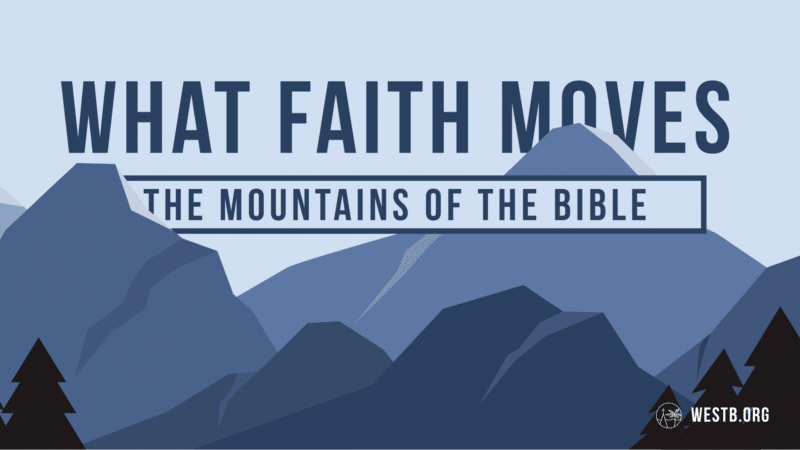Mount Ararat
Series: What Faith Moves: The Mountains of the Bible
Sermon Title: Mount Ararat
Speaker: Sam Rainer
Date: August 25,, 2024
Reflect
- Have you ever had to make a difficult decision where you felt uncertain about the outcome? How did you find the courage to move forward?
- What’s the longest project or task you’ve ever had to work on? How did you stay motivated over time?
Encounter
- In Genesis 8, Noah’s ark comes to rest on the “mountains of Ararat.” What does this moment signify about God’s relationship with humanity after the flood?
- How does the story of Noah and the ark parallel the story of Jesus as our means of salvation?
- Read Hebrews 11:7. What does this verse reveal about the nature of Noah’s faith and how it was demonstrated through his actions?
Transform
- In what ways does God’s patience, as seen in the story of Noah, challenge you in your personal walk of faith?
- How can we as a community ensure that we are on the “ark” today, meaning living in a way that reflects our faith in God’s promises?
Additional Discussion Questions
- How do you think Noah’s family felt during the 370 days on the ark? How might that experience have shaped their faith and understanding of God?
- What does the story of Noah teach us about the importance of family in God’s plan of salvation?
- Why do you think the story of Noah’s ark is still relevant today, and how can it serve as a warning or encouragement for us?
Interesting Facts and Tidbits
- Mount Ararat today is located in modern-day Turkey, standing nearly 17,000 feet high. The exact location where Noah’s ark rested is unknown, as the Bible refers to the “mountains of Ararat,” which could indicate any surrounding peaks.
- Noah’s Ark and the Flood: It’s estimated that Noah took around 100 years to build the ark, and he and his family spent about 370 days on it, making this one of the longest recorded periods of isolation in the Bible.
- The Significance of the Rainbow: The rainbow mentioned in Genesis 9:16 is a symbol of God’s covenant, a promise that He would never again destroy the earth by flood. This covenant is rooted in grace and serves as a reminder of God’s mercy.
Related Passages
- Genesis 6:5-6 – Explains the wickedness of humanity that led to the flood, providing context for God’s judgment and Noah’s obedience.
- Hebrews 11:7 – Highlights Noah’s faith and how his actions condemned the world, showing that faith is more than belief; it’s action in response to God’s word.
- 1 Peter 3:20-21 – Connects Noah’s experience to Christian baptism, illustrating how the flood symbolizes both judgment and salvation.

